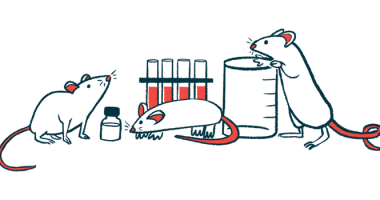How I’m Healing From PTSD Caused by Medical Trauma

I used to think my medical trauma was normal. Doesn’t everyone with chronic illness go through traumatic experiences and not talk about them?
When therapists helped me understand that I don’t need to have fought in a war to have post-traumatic stress disorder (PTSD), my perspective changed. It turns out that experiencing frequent medical trauma can cause PTSD, too.
I’ve been sick my whole life, which means I’ve never been able to trust my body. After growing up with cystic fibrosis, my health declined rapidly prior to my double-lung transplant four years ago. One day I’d be fine; the next I would rush to the hospital because my breathing had tanked. Every twinge, ache, or change in my breathing signaled I wasn’t OK and needed immediate medical attention.
Since my transplant, it’s taken time, therapeutic interventions, and radical healing to begin mildly trusting my body and its new lungs. I’ve always been on high alert regarding my health, which means that I’ve never had a break. I’m usually “on” and rarely allow myself to relax and trust that my health is stable.
My time in therapy and my career as a therapist have taught me how radically complex the brain is. Our brains can get stuck replaying traumatic events, causing us to feel the same sensations we felt during the event. Until we close the loop by processing the experience, the body thinks the traumatic event is still happening and tries to protect us by alerting the brain that we’re not safe.
The first step toward awareness of my PTSD was understanding the impact that trauma has had on my body. Being hypervigilant 24/7 isn’t just exhausting, it’s also unhealthy. An overactive nervous system makes my body believe that it’s never safe to relax.
As a result, I’ve struggled with insomnia on and off for years. Tension lives in my body and expresses itself through frequent headaches, belly pain, and backaches. Stress also can cause inflammation, which can lead to other health issues.
PTSD has affected my mental and emotional health. Due in part to past episodes of respiratory failure, I am very anxious about contracting an illness or infection that could compromise my new lungs. I get triggered easily when I’m concerned about my health. My brain mistakenly perceives regular health events as threats and produces inappropriate emotional responses.
Hypervigilance causes a heightened emotional state. This has infiltrated my thought processes, relationships, and how I function in the world. Past traumatic medical events have caused me to perceive everything through the lens of my trauma. Even when there aren’t any imminent threats to my health, medical situations can still send me into fight, flight, or freeze mode.
Healing from trauma has taken intense work, and because I still live with chronic illness, it’s an ongoing process. Traumatic events will continue to occur; what matters is that I understand their effects and have healing techniques readily available.
I didn’t begin healing until I utilized therapeutic modalities such as eye movement desensitization and reprocessing and began retraining my neural pathways to feel safe. Grounding exercises, reorienting myself, prayer, and meditation have also helped me feel safe and relaxed.
Developing a system for navigating and healing trauma is crucial for a healthy lifestyle. When we undergo additional trauma, having a system in place helps us process the event and heal more quickly. It’s also helped me figure out which coping strategies are most effective for me.
PTSD can be so heavy, but there’s hope for healing. Always.
Note: Cystic Fibrosis News Today is strictly a news and information website about the disease. It does not provide medical advice, diagnosis, or treatment. This content is not intended to be a substitute for professional medical advice, diagnosis, or treatment. Always seek the advice of your physician or other qualified health provider with any questions you may have regarding a medical condition. Never disregard professional medical advice or delay in seeking it because of something you have read on this website. The opinions expressed in this column are not those of Cystic Fibrosis News Today or its parent company, BioNews, and are intended to spark discussion about issues pertaining to cystic fibrosis.









Comments